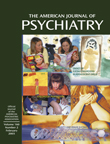Consciousness is stimulated, teased, confused, elevated, lowered, and challenged by this book. The author, a professor of psychology at Queen’s University in Kingston, Ontario, starts the book with both fists swinging, attacking what he calls neo-Darwinian “hardliners.” These include people like Daniel Dennett, Richard Dawkins, and Stephen J. Gould, an unlikely trio to share a label. Nevertheless, to Donald’s consciousness, they are all hardliners. And solipsists to boot. What, then, sets Donald apart?
“Consciousness,” of course, is a term that is defined in several different ways. Donald has an interesting chapter in which he discusses it as a state of awareness, a place in mind (the “architectural approach”), and a representation that is dependent on symbolization. Nevertheless, Donald uses the term “consciousness” loosely, as something developing through evolution but then crossing something of a consciousness divide in human beings.
Donald’s fundamental idea is that the evolution of consciousness has gone through a number of stages, which he calls episodic, mimetic, mythic, and theoretic. Episodic consciousness, characterized by episodic event perceptions and self-awareness (the primitive kind, such as recognizing oneself in the mirror), was attained by the primates, as is currently observable in some apes today. The mimetic stage was achieved by early hominids (2 million years to 0.4 million years ago), e.g., homo erectus, who evolved to have the skills of action metaphor, gesture, mime, and imitation. The mythic stage was achieved by homo sapiens and peaked in our subspecies, homo sapiens sapiens (0.5 million years ago to the present), who developed language, symbolic representation, oral traditions, and narrative thought. The theoretic stage represents modern culture with its external symbolic universe, formalisms, and, above all, massive external storage of information.
Donald’s contention is that human evolution of consciousness, since around half a million years ago, has been largely determined by culture, which is, of course, external to the individual organism’s brain. He further contends that culture is a product of consciousness, and that human consciousness, therefore, is a hybrid of outside culture and inside brain—that its evolution was through the interaction of culture and brain. Therefore, Donald brands those who believe that consciousness is solely within the brain as solipsists. He claims that one cannot become “conscious” (in the human sense) without interaction with culture, just as one cannot speak a language without being exposed to a language.
Donald illustrates some of his points using colorful examples such as the case of Helen Keller. He certainly makes a strong case for the influence of culture in the way consciousness is shaped, but I find myself remaining a solipsist when it comes to my consciousness or, for that matter, my unconscious as well.
Donald has much to say that is of interest to psychiatrists. He certainly presents a broad, if selective, spectrum of information from neurobiology, evolutionary biology, philosophy, and psychology to bolster his point of view, which, by itself, is quite thought-provoking. His discussion of his own ideas of the evolution of human consciousness in the latter third of the book is quite fascinating, including a discussion of the “kinematic imagination” that started the human race on the road to self-awareness and the subsequent “transitions” that eventually resulted in the construction of “symbolic technologies.”
I found the attack on hardliners, which appears more or less throughout the book, a bit too polemical; it tended to dull my consciousness. Donald certainly seems to dislike the notion that much of human activity, including cultural activity, may be unconsciously determined, which may amuse some psychiatrists. Consider the last sentence of his last chapter: “The triumph of consciousness will be complete when it can finally reflect on the collective process itself and see only itself, in the mirror of its own reflection” (p. 326). Donald’s ideas about culture out there becoming “hybrid” with our individual brains may be a bit of a leap, but, of course, homo sapiens sapiens may be on the brink of a leap in evolutionary paradigm, if not in the past, then in the future. We might pass on our evolutionary baton to a nonprotoplasmic mega-consciousness, perhaps a para sapiens maximus?

